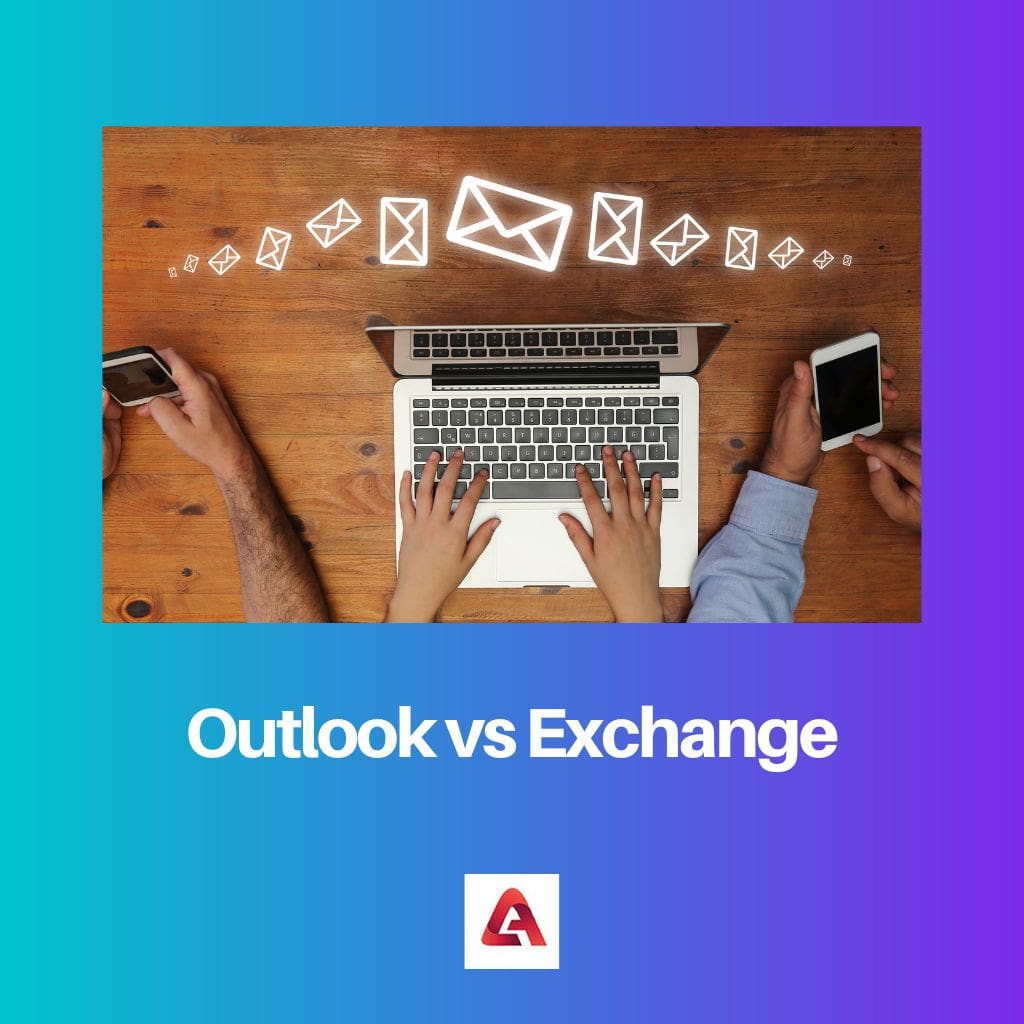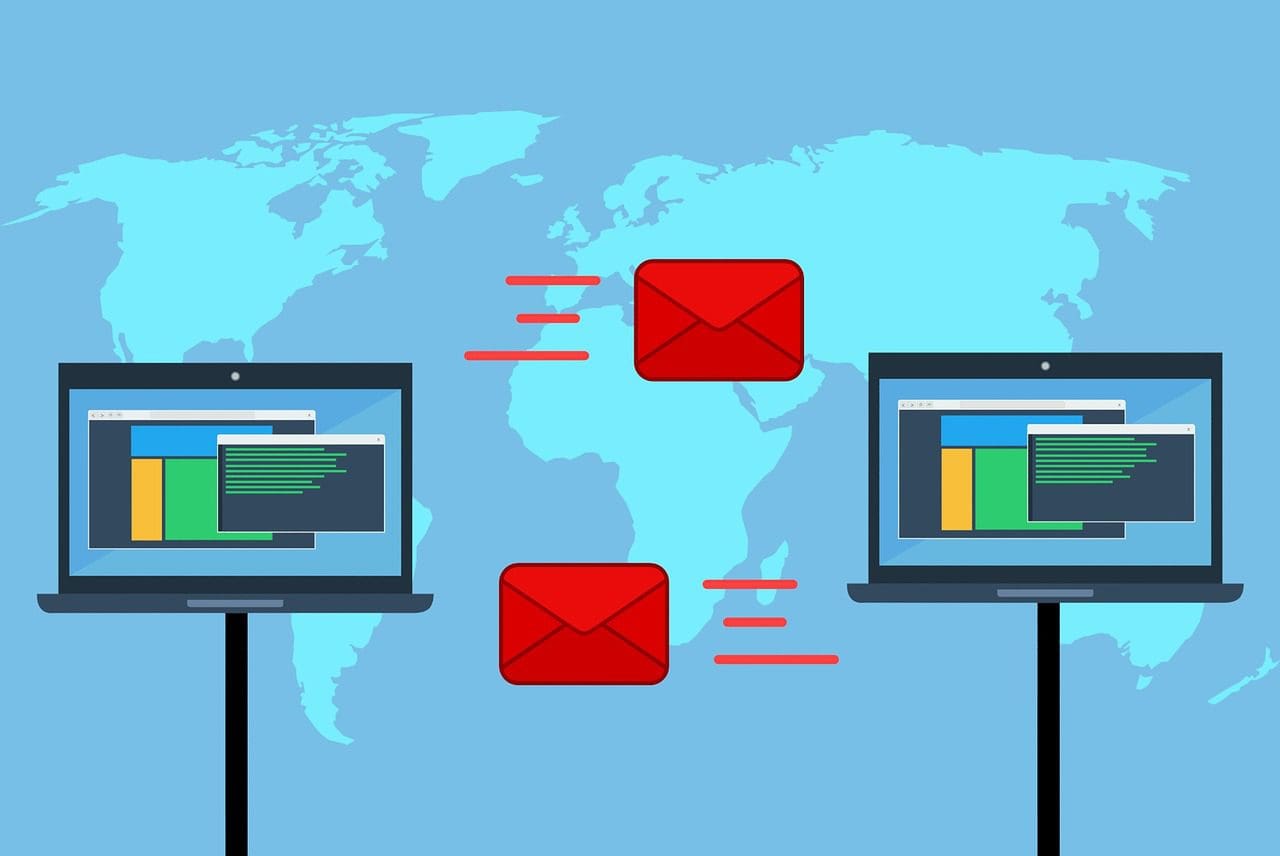As technology is getting ahead, the Internet is also a step ahead. The Internet is a result of technology helping people in their daily lives.
Earlier, people used to talk to each other via letters reaching the receiver after a few months or weeks. Still, due to the internet, this time gap and the distance have vanished as it has enabled people to contact each other in a few minutes or seconds.
An email client is a web application that enables the user to receive, send, type, or keep the mail of their account.
Key Takeaways
- Outlook is an email client software developed by Microsoft, enabling users to manage emails, calendars, and contacts; Exchange is a mail server platform, also by Microsoft, that facilitates the storage and management of emails, calendars, and other data.
- Individuals use Outlook to access their email accounts, while Exchange is used by organizations to host and manage their email infrastructure.
- An exchange server is required for advanced features like shared mailboxes and public folders, while Outlook can be used with various email providers, not just Exchange.
Outlook vs. Exchange
Outlook is available as part of the Microsoft Office suite; an email client used to send and receive emails, schedule meetings, and organize tasks. Exchange is a server software product that provides email and calendar services and other collaboration tools for organizations.

Comparison Table
| Parameters of Comparison | Outlook | Exchange |
|---|---|---|
| Definitions | An email client which is a personal information manager available as a part of Microsoft Office Suite. | Mail server, which is a proprietary Software product of Microsoft. |
| Purpose | Keeping records of emails and managing information about the system like calendars, messages, etc. | Enables faster and more efficient mailing. |
| Access | It is directly accessible on the desktop | It is available on web browsers or servers. |
| Runs on | Standard protocol IMAP or POP3 | Server |
| Requirement for installation | It does not require installation | Requires installation |
What is Outlook?
Outlook is a Microsoft software Which is a personal information manager available as a part of Microsoft Office Suite. Microsoft Outlook is an email client.
Microsoft took An initiative that enabled combining Hotmail and Windows to live into email service, enabling features like calendar note-taking, etc.
Outlook also has a free webpage known as outlook.com, which is quite similar to the computer version or the already installed version of Outlook. Outlook works on Android, windows, and iOS types of processors.
It is a desktop email client already installed on the computer and does not need any installation; the only requirement is to make an account in Outlook, after which it will automatically start managing the features in the system.
Outlook and outlook.com have similarities, and the user does not need to create different accounts for both.

What is Exchange?
Exchange is an email server introduced by Microsoft, a personal information management service that runs on a server Operating system.
Exchange Server enables users to securely access communications like email, voicemails, instant messaging, and text from the desktop, web page, or mobile devices.
Unlike Outlook, the exchange provides a back end to an integrated system for email, calendaring, messaging, and tasks. Exchange is a product of Microsoft that has made messaging and mail faster and more efficient.
Microsoft Exchange provides an integrated system for managing, recording, receiving, and sending emails and maintaining the system’s daily tasks in a more centralized database.
Microsoft Exchange is software that runs on a server that manages all the emails and tasks of the system more efficiently than Outlook. The other name of Microsoft Exchange is Windows messaging.
Microsoft Exchange is a cloud-based service that gives users access to emails and messages from all types of devices, such as PCs, mobiles, laptops, tablets, etc. It provides access to all kinds of software like Android or iOS.

Difference Between Outlook and Exchange
- Outlook is a personal information manager that enables the exchange server and provides management Tu personal contacts, email calendaring, etc.; on the other hand, the exchange has made emailing faster and more efficient.
- Outlook does not necessarily need a web browser as it already has a desktop version installed on PCs or mobiles; However, Outlook has a web server version, outlook.com; the exchange only needs access through a web browser.

The article is very insightful and explains the differences between Outlook and Exchange really well. Great work!
I’m glad you find it useful. I would only add that it could use some more visual illustrations.
I don’t see what’s the fuss about Outlook vs. Exchange. Both are important tools for business. Nothing really new.
I agree. This comparison doesn’t add much value to what we already know.
The article could at least provide more practical examples for the comparison.
The article is very well put together and accurate in its comparison of Outlook and Exchange.
Definitely very informative, but it could use a bit of a lighter tone considering the complexity of the topic.
Yes, it’s very accurate, but maybe a bit dry in tone.
I’m rather familiar with the topic and didn’t find the article particularly insightful.
Great article! I have edited thousands of technical documents and have always looked for content like this. The comparison between Outlook and Exchange is exactly what I was looking for.
Yes, this article is quite informative and well-structured. Would recommend to my colleagues.
This is the perfect comparison between Outlook and Exchange! It revealed several key differences I didn’t know existed.
I’m glad that others find it useful, but I’m familiar with the topic, so this article didn’t provide me with many new insights.
I prefer the detailed comparison in the article, written in a clear and structured manner. I appreciate it.
Yes, very comprehensive. I especially enjoyed the ‘Comparison Table’ section.
A very fascinating read! It is nice to see the underlying differences between Outlook and Exchange. This article has really broadened my knowledge about the topic.
Glad to hear! I’ve been using both for years and I still found new insights in the article.
Informative and well-structured article, will recommend it to students for comprehending the difference between Outlook and Exchange.
Agreed. It’s always good to read a well-thought and well-organized article.
Yes, especially considering how many poorly written articles are out there.
I’ve seen better explanations on this topic. The article is informative, but rather dry and could use a more engaging tone.
You’ve got a point. A bit more engagement wouldn’t hurt.
It’s probably more suited for experts than beginners. An engaging tone would make it more accessible.